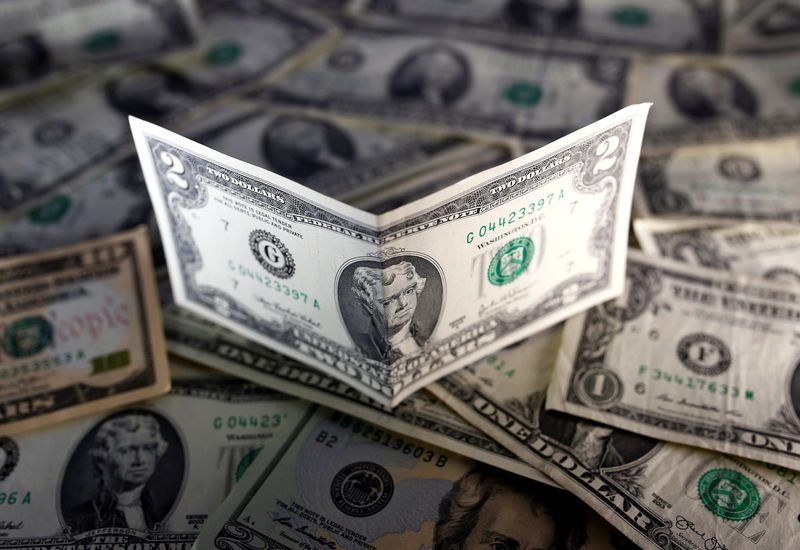By Gertrude Chavez-Dreyfuss
NEW YORK (Reuters) – The dollar sank to a three-week low on Monday after comments by Federal Reserve officials reinforced market expectations that the U.S. central bank is near the end of its tightening cycle.
The Fed, however, is widely expected to raise interest rates by another 25 basis points this month despite Friday’s data showing U.S. job gains were the smallest in 2-1/2 years. The expected rate hike in July would follow a Fed pause in June.
Several Fed officials led by San Francisco Fed President Mary Daly on Monday said the central bank likely will need to raise interest rates further to bring down inflation that remains persistently high, but the end to its current monetary policy tightening cycle is getting close.
In afternoon trading, the dollar index, which tracks the U.S. currency against a basket of major peers, slid 0.3% to 101.98, a three-week low.
The euro rose to three-month peaks of $1.0997 versus the dollar and last changed hands at $1.0995, up 0.2%.
Against the yen, the greenback fell as low as 141.32 yen, the lowest since June 21. It was last down 0.6% at 141.335. It slid nearly 1.3% last Friday after U.S. nonfarm payrolls increased 209,000 in June, missing market expectations for the first time in 15 months.
“The weaker pressure on the dollar has … been hard to square from a relative rates and growth standpoint,” said Erik Nelson, macro strategist at Wells Fargo (NYSE:WFC) in London.
“U.S. growth has outperformed expectations, while Europe and China have underperformed. I think the U.S. economy is stronger than we give it credit for,” Nelson added.
Details in Friday’s employment report reflecting persistently strong wage growth underscored market pricing of a further rate hike later this month, even if once-expected cuts later in 2023 now seem unlikely.
With U.S. nonfarm payrolls out of the way, attention turns to U.S. inflation data due on Wednesday. Expectations are for core CPI to have risen 5% on an annual basis in June.
Meanwhile, Norway’s crown, the second-weakest performing currency in the G10 this year, strengthened after data showed core inflation continued to rise in June and hit a fresh record.
The Norwegian crown firmed against the dollar and euro following Norway’s inflation data. The dollar was last down 1% at 10.493, while the euro dropped nearly 1% to 11.5363.
The Chinese yuan slumped against the dollar after weak inflation numbers in the world’s second-largest economy.
Data on Monday showed factory-gate prices fell at the fastest pace in 7-1/2 years in June and consumer inflation was at its slowest since 2021, fueling hopes for further support measures from Chinese authorities.
The U.S. dollar was last little changed versus the offshore yuan at 7.230.
The weak Chinese data dragged down the Australian and New Zealand dollars, which are often used as liquid proxies for the Chinese yuan.
The Aussie fell 0.2% to US$0.6677, while the New Zealand dollar reversed losses to trade 0.1% higher to US$0.6215.



